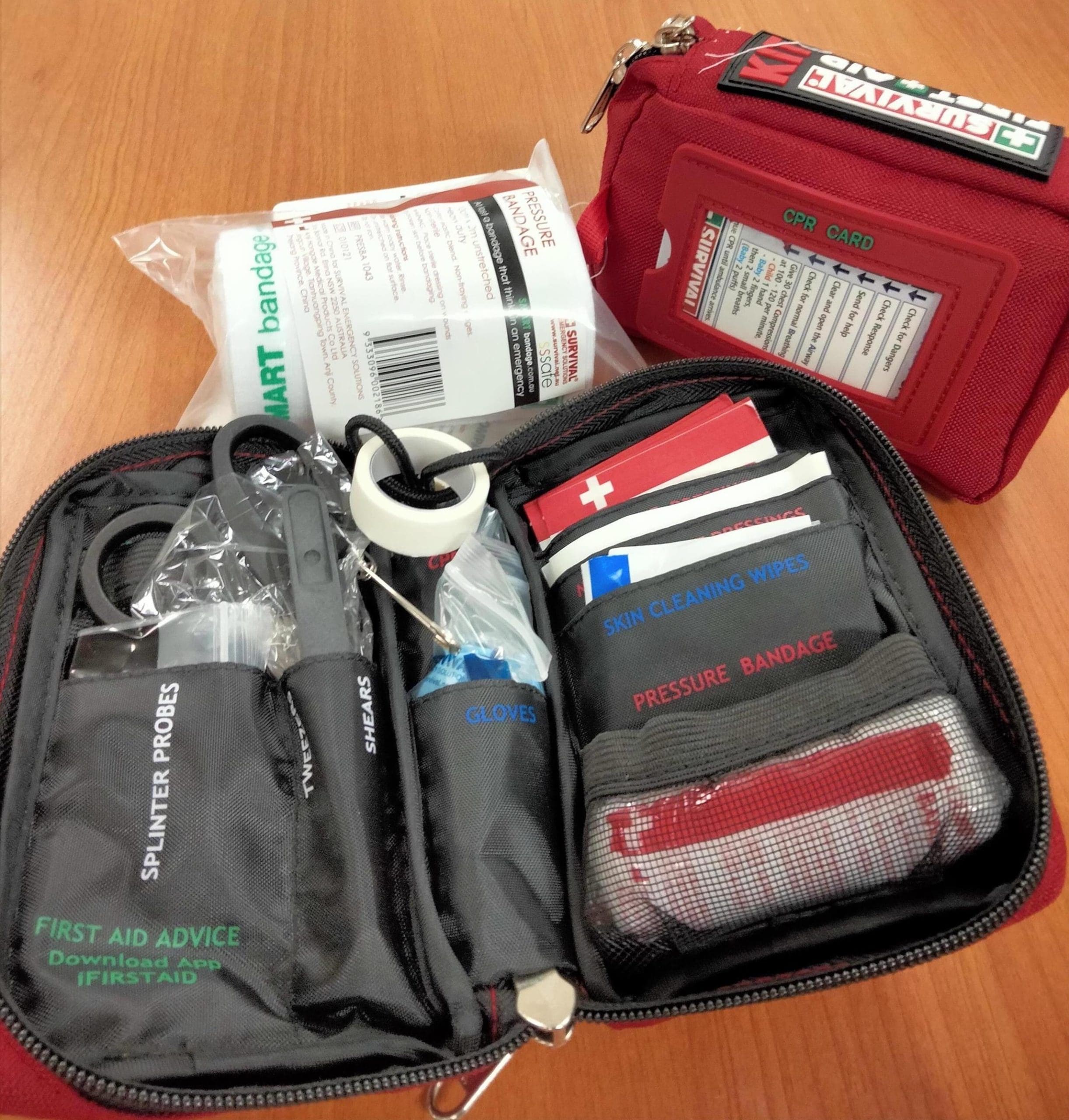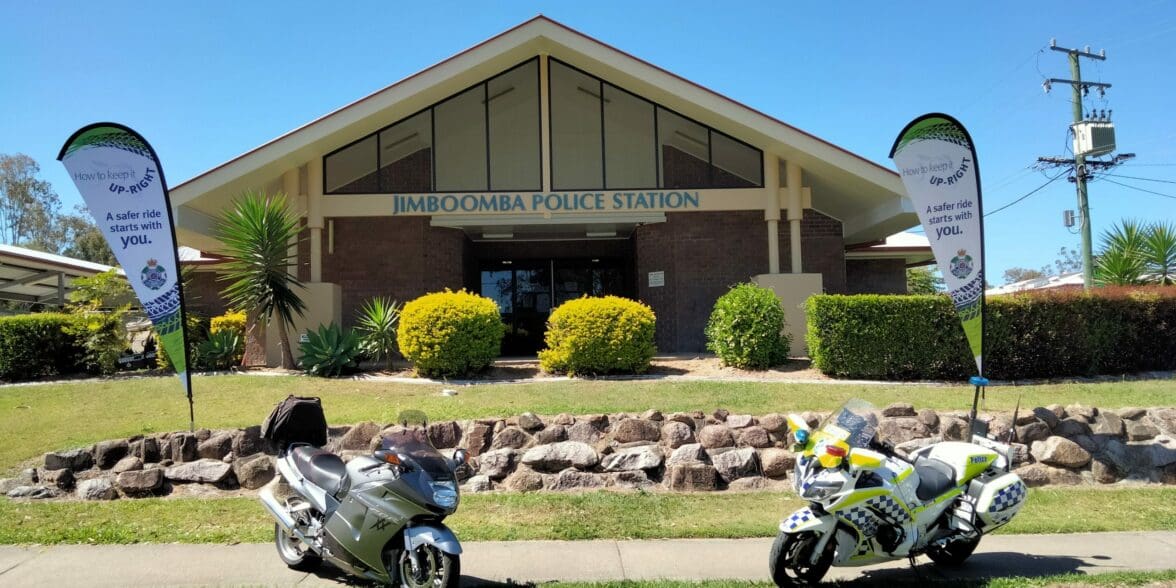A rider survival course created by Jimboomba Police south of Brisbane may soon spread across the state and even interstate.
The How to keep it up-right skill-enhancing program was the brainchild of riders and Jimboomba coppers Senior Sergeant Peter Waugh and Sgt Rob Duncan.
Peter, who rides a Yamaha Super Tenere, says they were inspired to do something about rider safety because of the dubious honour of being part of the South Eastern Region which has the state’s highest number of motorcycle fatalities.
The first course was called Mouldy Hogs for riders who hadn’t ridden a motorbike for a few years.
“We found a lot of old riders who hadn’t ridden for five or 10-plus years were hopping on powerful motorbikes and getting into trouble handling the power and the brakes,” Peter says.
“We got TMR (Transport and Main Roads) funding for that course a few years ago and we thought it was pretty good, so we surveyed people who did it and spoke to TMR and looked at the stats and thought we could run a better course.”
He says they sought expert advice from rider trainers, ambulance and the police accident investigation unit to develop the improved How to keep it up-right course.

The current course costs $50 and has TMR support funding for 750 riders.
“The $50 is really a token cost,” Peter says.
“If we gave it for free, people wouldn’t value it. Besides, it includes a first-aid kit prepared by Queensland Ambulance and some other extras.

“It’s not a go-fast or track-day course, but a survival course.”
Courses are held on weekends and you can book online by clicking here. Numbers are limited as they have a one-in-five ratio of trainers to attendees.
The course may soon also be available in other parts of Australia.
“We’ve had people from the national riders association attend the course and NSW and Victoria coppers who’ve come up and looked at the course and Queensland coppers who want to take the course on,” he says.
TMR will assess the effectiveness of the course when it finishes later this year.
“Is it the best? There is always room for improvement,” says Peter.
Now I know what you’re thinking: “This is just an opportunity for coppers to write infringement tickets for illegal modifications.”
But Peter says that even though they always have a Road Policing Unit officer attend course, they have never booked anyone who has attended the course.
“We are not out there to look for illegal modifications, etc. Even my bike has different pipes!”
He also acknowledges that the survival course only attracts people who are already concerned about their safety and not the errant hoon riders who cause most of the problems.
“I agree that your average hoon that does burnouts will never attend our course and I don’t want them anyway,” he says.
“But if you go with the right attitude you will learn. You can’t go on a course and learn nothing. Even if it reinforces things you’ve already learnt, it is worthwhile.”
He says the course has an emphasis on avoiding dangerous situations, putting the onus on the rider for their own safety.
“We try to get away from blaming other motorists,” he says.
“We are trying to give you the knowledge and experience to not put yourself in that position.”
The course involves:
- Practical advice and practising cornering, braking, roadcraft and bike control skills;
- Understanding how your brain and vision work together to improve riding;
- Why other road users don’t see you and what you can do about it’
- How to recognise “uh oh” moments and how to prevent them;
- Learn how to maximise rider enjoyment while minimising risks;
- Expert advice from QPS officers and first aid from a QAS paramedic.
The course includes:
- 1 year membership to the SMART Rider Academy with access to online content as it is released;
- Monthly online “tune-up” session with coaches;
- Deals on riding gear from program partners; and
- A first-aid kit.


